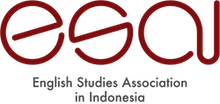CHARACTERISTICS OF EFL STUDENTS RESEARCH PROPOSALS: HOW RESEARCH STUDENTS ESTABLISH THEIR RESEARCH TERRITORY
DOI:
https://doi.org/10.30996/anaphora.v2i1.2722Keywords:
research writing, EFL student proposal structure, territory establishmentAbstract
This study investigates characteristics of EFL students's academic writing, particularly students research proposals. This study aims to uncover how novice researchers introduce their research topics within the larger research area. In particular, this study focuses on how students establish their research territory in the introductory parts of their proposals. This study focuses on students knowledge and preparation for conducting scientific research and the structural characteristics of students's research proposals. The study is based in Swales(1990) CARS Model for research article organization. This descriptive qualitative study involves 136 student proposals collected from 6th semester bachelor students majoring in English who enrolled in Research of Language classes in four academic years 2014/2015, 2015/2016, 2016/2017 and 2017/2018. Analysis of students topics indicates that most students are not yet well-prepared for conducting research. Analysis of the structural characteristics of the proposal also shows that students lacked substantial knowledge on research area or disciplines as well as scientific writing, particularly research writing, that detriment their success for entering the research community. Serious pedagogical and training efforts need to be done to improve students ability and preparation for research.
Downloads
References
Al-Khasawneh. (2017). A genre analysis of research article abstracts written b y native and non-native speakers of English. Journal of Applied Linguistics and Language Research. Vol. 4, no. 1, 2017.
Belcher, D. & Braine, G. (eds.) (1995). Academic Writing in a Second Language: Essays in Research and Pedagogy. Ablex, Norwood, NJ.
Berkenkotter, C. & Huckin, T. (1995). Genre Knowledge in Disciplinary Communication: Cognition/Culture/ Power. Erlbaum, Hillsdale, NJ.
Cnaggs, C. (2001). Editorials. Journal of Venomous Animals and Toxins. Vol. 7, No. 2. December 2001. www.scielo. br/http://dx.doi.org. accessed: 23-9-2018.
Dudley-Evans, T. (1995). Common-core and specific approaches to the teaching of academic writing. In D. Belcher & G. Braine (eds.) (1995).
EnagoAcademy.Why editing is imperative. www.enago.com. accessed: 23-8-2018.
Flowerdew, J. (2000). 'Discourse community, legitimate-peripheral participation, and the non-native English-speaking scholar.'TESOL Quarterly, vol. 34, pp. 127-150.
Harjanto, I. (1999). English Academic Writing Features by Indonesian Learners of English. Ph.D Dissertation. Institute of Teacher Training and Education at Malang, Indonesia.
Harno, Su. (2012). Rhetorical functions in the introduction section of English RA by non-native speakers. Humanika vol. 15, no. 9, January 2012. Https://ejournal.Undip.ac. Id. Accessed:23-09- 2018
Kuhn, T. (1970). The Structure of Scientific Revolution. Second Edition. University of Chicago Press, Chicago.
Mirahayuni, NK. 2003. Genre and discourse community: Two key notions in approaches to English research articles. Parafrase Vol. 3, No. 02, Agustus 2003, pp. 78-92.
Purnomo Edi (reporter). Pemerintah targetkan 2019 Indonesia pimpin publikasi ilmiah di Asia Tenggara. Merdeka.com, 2 Juli 2018, accessed: 23-09-2018.
Setyaningsih, Y. 1993. A Study on Elements of Argument in Scientific Writings of S2 Students of Language Department of IKIP Malang. Unpublished MA Thesis. Postgraduate Program, IKIP Malang.
Sugiyono. 2007. Metode Penelitian Kuantitatif, Kualitatif dan R &D. Bandung: Alfabeta.
Swales, J. 1981. Aspects of Article Introduction. The University of Aston, Language Studies Unit, Brimingham, UK.
Swales, J. 1990. Genre Analysis: English in Academic and Research Settings. Cambridge University Press, Cambridge.
Tukan, S.L. 1991. A Study of the Reasoning of the S1 Students of the English Department as Manifested in their Argumentative Compositions. MA Thesis. Postgraduate Program, IKIP Malang.
Wahab, A. 1995. Indonesian rhetoric in intercultural communication. Unpublished paper. TEFLIN silver anniversary seminar, IKIP Yogyakarta, Gadjah Mada University & Sanata Dharma University, Yogyakarta.
Downloads
Published
How to Cite
Issue
Section
License
Authors whose manuscript is published will approve the following provisions:
-
The right to publication of all journal material published on the jurnal anaphora website is held by the editorial board with the author's knowledge (moral rights remain the property of the author).
-
The formal legal provisions for access to digital articles of this electronic journal are subject to the terms of the Creative Commons Attribution-ShareAlike (CC BY-SA) license, which means Jurnal Persona reserves the right to store, modify the format, administer in database, maintain and publish articles without requesting permission from the Author as long as it keeps the Author's name as the owner of Copyright.
-
Printed and electronic published manuscripts are open access for educational, research and library purposes. In addition to these objectives, the editorial board shall not be liable for violations of copyright law.















